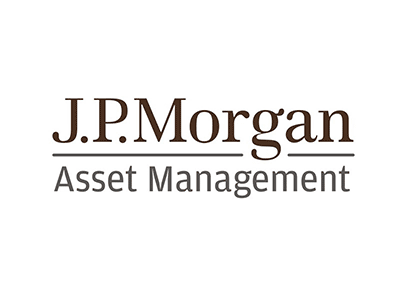Austin Forey is an emerging markets veteran with almost four decades of experience
JPMorgan have a large team of analysts covering emerging markets
The managers seek to invest in high-quality companies with sustainable growth prospects and hold them for the long term
How it fits in a portfolio
JPMorgan Emerging Markets Investment Trust aims to grow capital over the long term. It invests in growing businesses across a diverse range of emerging economies such as India, China, Taiwan, and Hong Kong. It’s important to note that whilst emerging markets offer lots of opportunity for investors, they're higher risk and typically more volatile than developed markets.
Given its focus on growth, the trust could complement more value orientated Asia and emerging market investments. It could also be blended with other trusts or funds that mainly invest in developed markets as part of a globally diversified portfolio.
Manager
Austin Forey is a seasoned emerging markets investor and has managed this trust since 1994. His career at JPMorgan began in 1988 during which he’s built up an extensive knowledge of global markets. His analyst career focussed on the engineering, financials, and property sectors. He served as deputy head of UK research before joining the emerging markets team.
Forey is supported by co-manager, John Citron who was appointed in March 2021. He joined JPMorgan in 2009 and has worked across both the European and Emerging Markets Asia Pacific Equities teams. The duo have worked closely for several years and also manage other funds focused on emerging markets, adopting the same core process throughout.
The managers benefit from a well-resourced team of around 130 individuals across nine countries. From Seoul to Mumbai, they have eyes in most corners of the market. We think this is invaluable given the vast range of countries, cultures and companies within their investable universe.
Process
Forey and Citron seek to invest in high-quality companies with sustainable growth prospects and hold them for the long term. They pay close attention to the financial strength of a business, the quality of the management team and the level of corporate governance. Other factors, such as the dividends a company pays and how changes in a country's currency might impact a business, are also considered.
To quantify these factors, the managers leverage off the extensive analyst resource available. Each analyst is required to complete a checklist of around 100 questions to build a deep understanding of the business and any associated risks. They also travel across the region to visit a vast number of companies annually to gain insight into what's happening on the ground.
Once they’ve established whether they want to own a company, they need to ensure they aren’t overpaying for it. They forecast the expected return over five years and try to identify what’s driving that growth. The team need the catalyst for growth to be delivered principally through earnings growth and dividends, rather than solely a change in its valuation.
The managers use this analysis to construct a portfolio of between 60-100 companies which means it can look quite different to the benchmark. For example, they invest much more in companies based in India and Hong Kong than the benchmark. In contrast, China and South Korea are some of their biggest underweights. Sector wise, information technology, financials and consumer staples are where they find most opportunities. They mainly invest in large, established firms, but also invest in some medium and higher-risk smaller companies.
Given their long-term focus, the managers don’t tend to make too many changes. Over the last financial year (to the end of June 2024) they added some select new stocks to the portfolio including OTP, a Hungarian bank which operates across Eastern Europe, and Banco Bilbao, a company which, in spite of being headquartered and listed in Spain, derives most of its profits from emerging markets, notably from Mexico, where it owns the country’s leading bank, and also from Turkey.
On the other hand they reduced some of their holdings in India as they had risen to a point where they looked expensive.
The trust also has the ability to borrow money to invest with the intention of increasing returns (known as gearing) which increases risk. Currently the managers don’t use this facility.
Culture
JPMorgan is one of the world's biggest asset managers. It has investment professionals based all over the world, and the team behind this fund can tap into this experience and local knowledge. The group is home to a strong emerging markets offering and the team is stable, with low turnover among senior members.
Forey has remained loyal to the group and spent his entire investment career at JPMorgan, and we think he is dedicated to the emerging markets group. We view it positively that the managers are incentivised to focus on long-term performance.
ESG integration
JPMorgan committed to integrate ESG factors into its investment processes for active funds in 2016 and ESG is now a foundation for investment decisions across the firm. JPMorgan funds take a variety of different approaches, from quantitively scoring companies on a variety of ESG measures to help with portfolio construction, to more qualitative analysis achieved through fundamental research and company meetings. All fund managers have access to the central Sustainable Investing team, as well as thematic research and analytics, which focus on climate change and carbon transition.
Investment teams are required to demonstrate their progress on integrating ESG to a working group of senior managers from across the business and the Sustainable Investing team. Their progress is measured against a 10-point scoring system and must satisfy several conditions before it can achieve ‘ESG accredited’ status.
If the strategy does not meet this threshold, the investment team in question will need to incorporate the feedback from the working group and reapply to restart the review process. Once approved, teams must seek recertification every three years, and are subject to ongoing monitoring. We like this objective approach to internal ESG accreditation.
The firm has detailed voting policies which are specific to each region they invest in and account for local customs. Investment teams and investment stewardship specialists in the relevant region are responsible for implementing those policies, based on their deep knowledge and experience of the country, sector and company. A detailed fund-by-fund and company-by-company voting record is available on the JPMorgan website, although voting rationale is not provided. Fund managers also regularly engage with the companies they invest in, and there are a number of case studies on their website and in their annual Investment Stewardship report.
In February 2024, J.P. Morgan Asset Management controversially withdrew from the Climate Action 100+ collaborative engagement initiative, citing that it had built up its own stewardship capabilities. Following a recent meeting with the firm's Global Head of Sustainable Investing, we are confident that it remains firmly committed to sustainability.
Cost
The trust's ongoing annual charge in the year to 30 June 2024 was 0.79%, which was down from 0.85% the previous year. Investors should refer to the latest annual reports and accounts and Key Information Document for details of the risks and charging structure.
If held in a SIPP or ISA the HL platform fee of 0.45% (capped at £200 p.a. for a SIPP and £45 for an ISA) per annum also applies. Our platform fee doesn't apply if held in a Fund and Share Account or a Junior ISA. As investment trusts trade like shares, both a buy and sell instruction will be subject to our share dealing charges within any HL account except online deals in a Junior ISA.
Performance
The JPMorgan Emerging Markets trust has delivered strong returns versus the benchmark and the peer group under Austin Forey’s management. Over the past ten years, the trust’s share price has risen by 123.95%* vs 64.30% for the AIC Global Emerging Markets sector average. Past performance is not a guide to future returns.
Over the trust’s financial year to the end of June its share price rose 4.6% versus 13.2% for the trust’s benchmark. The trust’s NAV rose by 7.2%. The discount at which the trust is trading (the difference between the price of the fund and the underlying assets it holds) rose slightly to 12.0% from 9.7% the year before. To put this in context, the trust has traded at an average monthly discount of 9.42% over the last 10 years.
The trust paid a dividend for the year of 1.90p per share, up from 1.65p the previous year.
Over 2024 so far (to the end of August), the biggest detractor was HDFC Bank, India’s largest private bank, which merged with its parent company last year. Unfortunately this has not brought the economies of scale that investors expected and the share price has reacted negatively. Other significant detractors include AIA, EPAM Systems and Grupo Financiero Banorte.
It hasn’t all been bad news though. Some of the stocks in the portfolio which have performed well include TSMC, a semiconductor company based in Taiwan, NU Holdings, the Brazilian bank, and MercadoLibre, an Argentine online marketplace.
Remember all investments can fall as well as rise in value, so investors could get back less than they invest. Investors in closed-ended funds should be aware the trust can trade at a discount or premium to the net asset value (NAV).
30/09/2019 To 30/09/2020 | 30/09/2020 To 30/09/2021 | 30/09/2021 To 30/09/2022 | 30/09/2022 To 30/09/2023 | 30/09/2023 To 30/09/2024 | |
|---|---|---|---|---|---|
JPMorgan Emerging Markets Investment Trust PLC | 11.22 | 20.81 | -20.62 | 3.20 | 9.14 |
MSCI EM (Emerging Markets) TR USD | 5.72 | 13.70 | -12.79 | 2.59 | 15.14 |
AIC Investment Trust - Global Emerging Markets | -13.64 | 30.64 | -8.05 | 5.73 | 10.55 |


